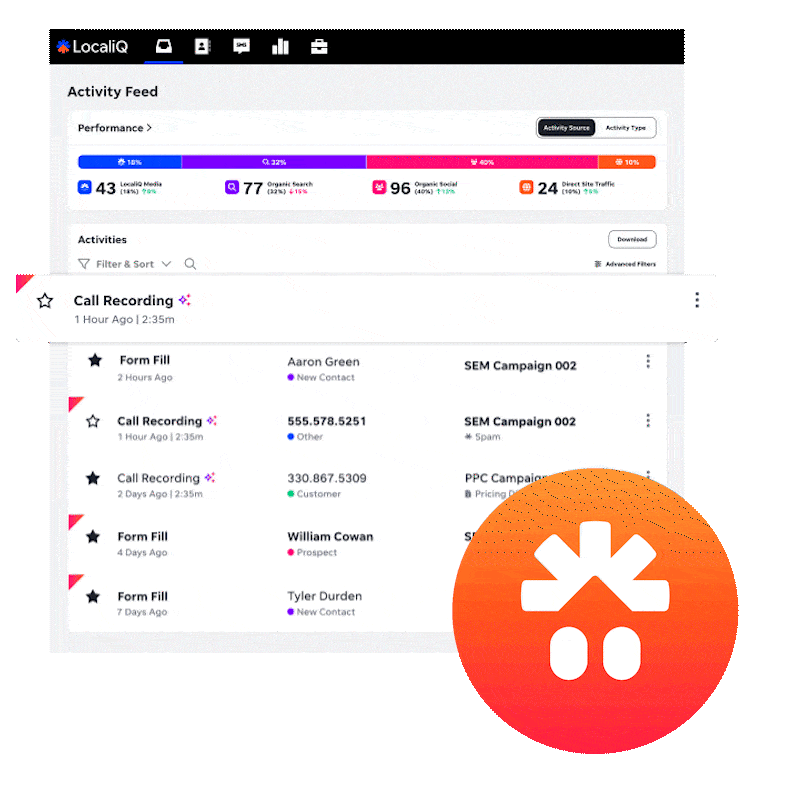Search Engine Optimisation (SEO) can feel like going down a rabbit hole for small business owners. With Google updates, AI-powered search tools like Gemini and ChatGPT and endless talk about “rankings” and “algorithms,” it’s easy to get lost.
To help clear the fog, we’ve pulled together answers to the most common SEO questions business owners ask.
1. Is SEO really worth it in 2025?
Yes. While AI tools like ChatGPT and Perplexity are changing how people search, Google still drives the overwhelming majority of website traffic. Recent research shows Google sends over 340 times more traffic to websites than ChatGPT, Gemini or Perplexity combined.
In other words, SEO remains the foundation of online visibility. AI tools are growing, but they still rely on quality websites for answers.
2. How long does SEO take to work?
Unlike paid ads, SEO isn’t instant. It usually takes 3–6 months to see consistent results, depending on your industry, competition and starting point.
Think of SEO like building fitness. You won’t see a six-pack after one gym session — but if you stick with it, the results compound over time.
3. What’s the difference between SEO and paid ads?
- SEO earns traffic naturally by improving your website content, structure and authority. Once you rank, clicks are free.
- Paid ads buy visibility instantly, but the moment you stop paying, the traffic stops.
The best strategy is often a mix: use ads for quick wins, and SEO for sustainable growth.
4. How has AI changed SEO in 2025?
AI hasn’t killed SEO — it’s made it more important. Tools like Google’s AI Overviews summarise information from websites. If your site has clear, structured content (like FAQs, how-to guides, and schema markup), you’re more likely to be featured.
AI also breaks queries into subtopics (known as the “fan-out method”). That means in-depth content that covers a topic from multiple angles is more likely to surface than a short, keyword-stuffed blog.
5. Do keywords still matter for SEO?
Yes, but not the old-school way. It’s less about stuffing in “plumber Sydney” 20 times and more about matching user intent.
For example, if people search “best weekend electrician in Sydney”, your content should explain after-hours availability, pricing and reviews. Answer the actual question, not just repeat the phrase.
6. What’s the role of my Google Business Profile?
It’s critical. AI tools and Google’s AI Mode increasingly pull information straight from Google Business Profiles. A complete, regularly updated profile with photos, services, and positive reviews improves your chances of showing up in both maps and AI-generated results.
7. How do I know if my SEO is working?
Look for improvements in:
- Organic traffic (visitors from Google search)
- Direct enquiries (calls, emails, bookings that reference “found you on Google”)
- Keyword visibility (are you showing up for relevant searches?)
- Authority metrics (trust signals like reviews, domain authority scores and backlinks)
8. Do small businesses need technical SEO?
Yes, at least the basics. A site that’s slow, hard to navigate or not mobile-friendly will struggle. Even Google ads and AI-powered campaigns perform worse if your landing pages are weak.
Simple fixes like page speed optimisation, mobile responsiveness and schema markup can make a big difference.
9. Is SEO a one-time job?
No. SEO is ongoing. Algorithms change, competitors update their sites, and new search behaviours (like voice and AI queries) emerge all the time.
Think of SEO as maintenance plus growth. You don’t stop maintaining your shopfront once it’s painted — the same applies online.
10. What’s the future of SEO?
Expect more AI-driven search experiences. Google’s AI Mode is already live in New Zealand and rolling out elsewhere. Zero-click searches will grow, meaning people may get answers without clicking through — but you still want your business cited in those answers.
The takeaway: SEO is shifting from just “ranking on page one” to being trusted, referenced and visible across multiple platforms.
SEO often gets overcomplicated, but at its core it’s about one thing: helping people find and trust your business online. AI is changing the search game, but it doesn’t replace SEO. If anything, it makes it essential.
By answering customer questions clearly, keeping your site technically sound, and optimising your local profiles, you’ll not only stay visible in Google but, you’ll also position yourself to be featured in the new wave of AI-powered search.






